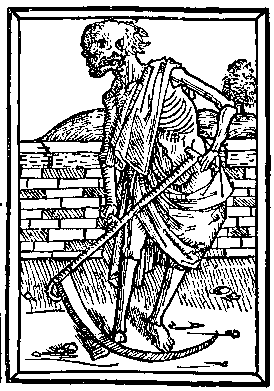who really cares?

I've been wondering how many people need to die before ordinary people sit up and recognise the silent genocide that is happening in Southern Africa?
I'm not talking about the outrage or wringing of hands by governments or humanitarian organisations. I mean, what does it take for you and me to actually, honestly weep for the thousands who are dying? What changes them from faceless numbers to individuals? Is it only when death comes knocking on the doors of our cocoons?
And what is it that makes some genocide internationally recognised and deplored while others fall through the cracks?
I was reading recently about the genocide that occurred in Burundi at the same time as the Rwandan crisis. It was another case of violent conflict between Hutu and Tutsi, but unless I've missed something, it has never received anything like the publicity that the Rwandan conflict has. In fact, in 1972, Burundi had the dubious honour of being the first country in the Great Lakes region to see genocidal conflict. Conservative estimates put the number of Hutu victims somewhere between 100,000 and 300,000 while an estimated 2,000 to 5,000 Tutsi died. The genocide flared up again in 1988, to international censure, but peace has been short lived. Some commentators estimate that a further 300 000 people have died in ethnic cleansing in Burundi since 1993.
Irin, the UN Office for the Coordination of Humanitarian Affairs, has an interesting report here about the causes of the cholera epidemic in Zimbabwe. It highlights the fact that only 440 cases of cholera had been recorded in Bulawayo, out of the 88 000 cases WHO is reporting. Why so few?
It seems that mad uncle Bob and his evil henchmen realised that the MDC's strongholds were in the cities, so they "attempted to dilute the power of MDC municipalities by transferring the provision of services, and their budgets, to parastatals under the control of central government".
Bulawayo managed to hold out, so they avoided the fate of Harare, where, the Zanu-PF water authority Zinwa admitted to pumping raw sewage into Lake Chivero, Harare's main water source.
With reference to "Mad Uncle Bob", I asked a Zimbabwean NGO worker at the SUD-Net conference recently about Mugabe.
"Does he have syphillis? Is that what's making him mad?" I asked.
"No" she replied. "There's nothing wrong with him. He's just evil".
To get back to the genocide. In South Africa, a couple of recent research papers have shown that more than 330,000 people have died unnecessarily and that 35,000 HIV-infected babies were born who could have been protected from the virus and would probably have a limited life. This in spite of an offer of free Nevirapine by its German manufacturer.
According to a SciDev Net report "Mbeki became convinced in 1999 that HIV was not the cause of AIDS, in line with a group of dissident scientists. Those who disagreed with him feared reprisals if they spoke out, and those who did were humiliated and derided. Later, Mbeki conceded that HIV could be one cause of AIDS alongside malnutrition and other diseases. He also believed that ARVs were toxic, and the scientific consensus was based in racist views and driven by money- and power-hungry drug companies, governments and scientists."
It may not meet the normal definitions of genocide, but surely so many deaths caused by negligence and pig headed stupidity deserve more international reaction? I know that international health bodies and others have spoken out, but I can't help wondering if genocide happens because we ordinary people do not see those numbers, those hundreds of thousands who have died terrible deaths, as real people?

Comments
it all seems so senseless...both mad uncle bob and a denial of the truth of AIDS. i honestly don't get it.
Wonderful post on a shockingly horrible reality.